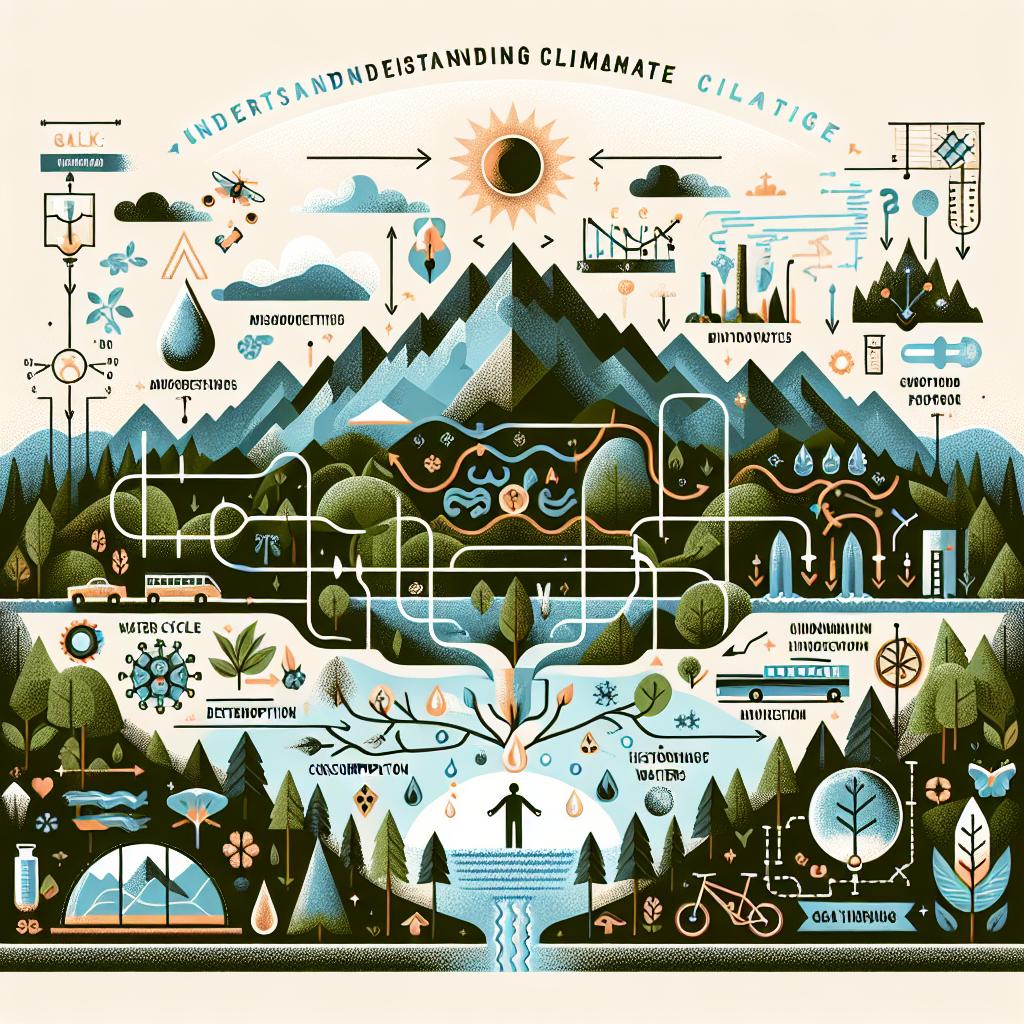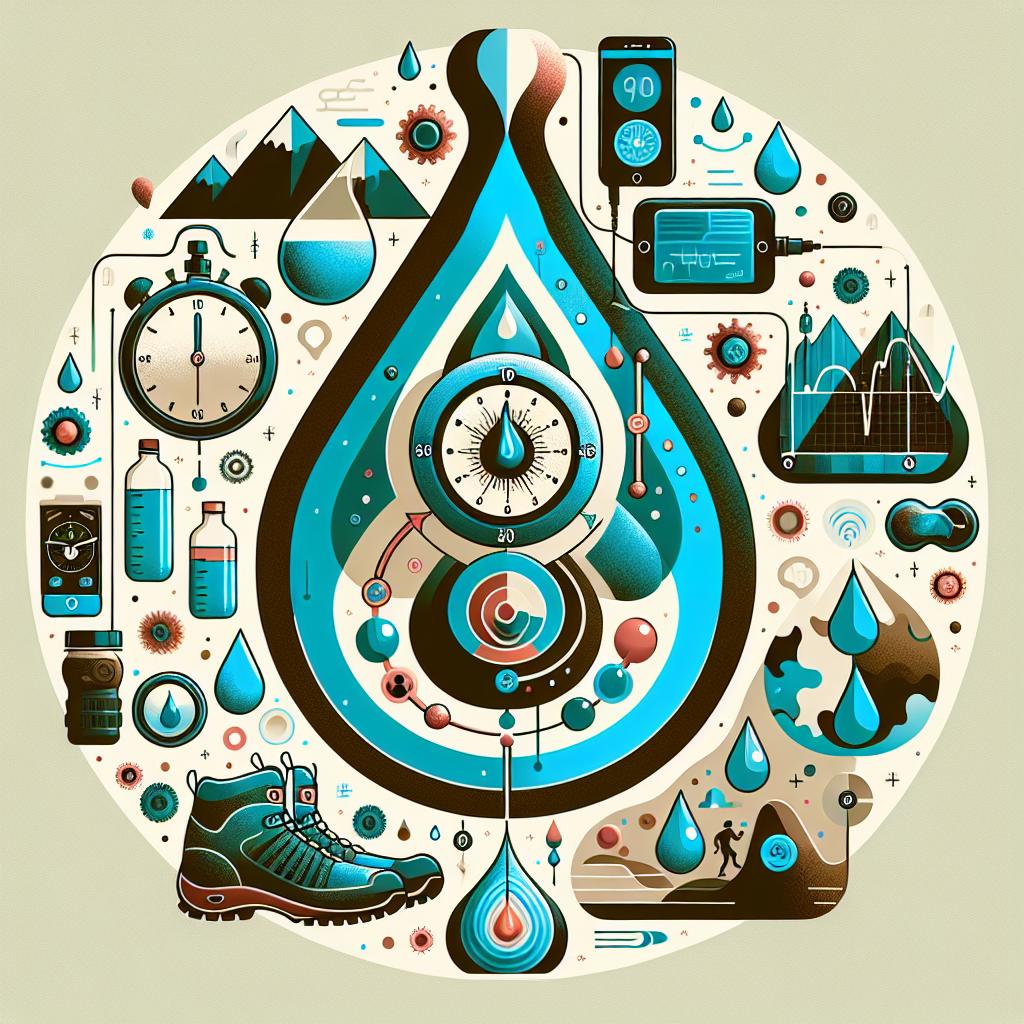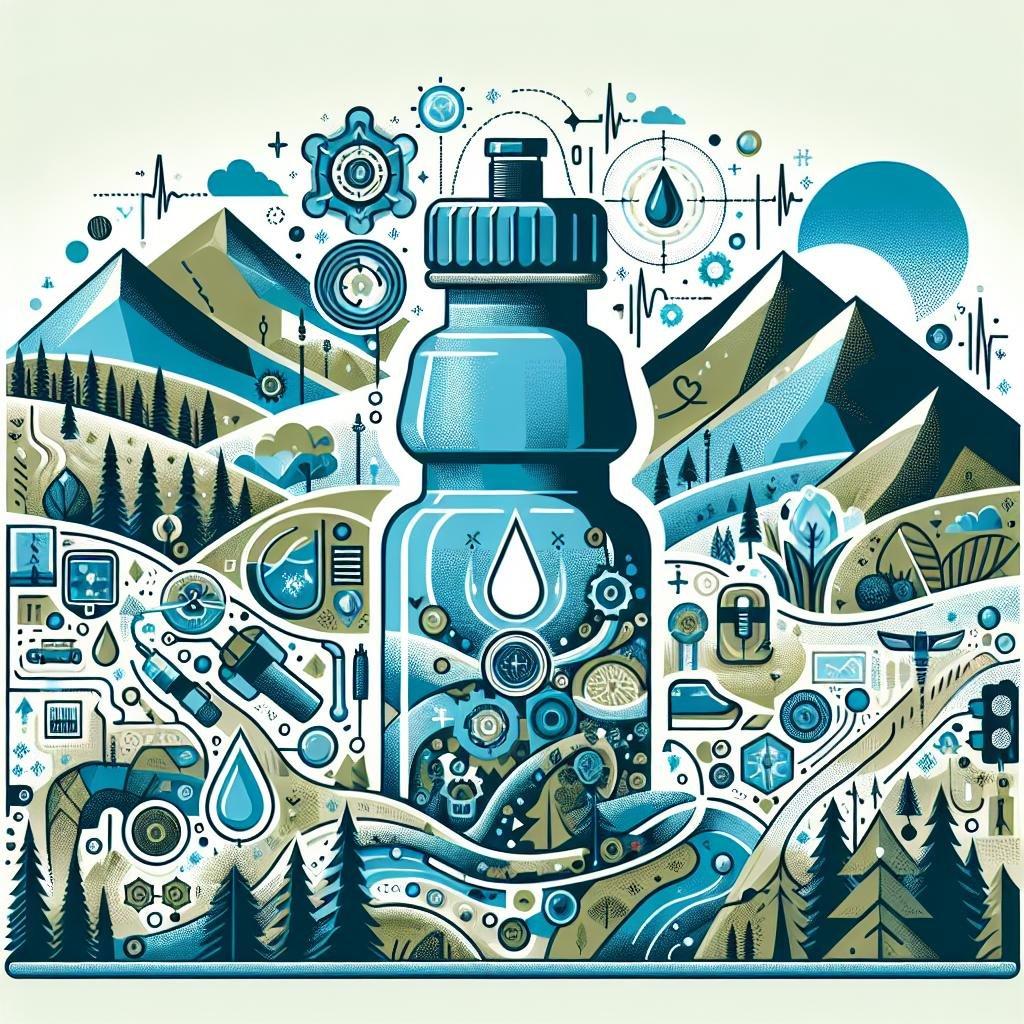Nestled in the majestic heart of the Great Smoky Mountains, Gatlinburg, Tennessee, offers an abundance of breathtaking trails and picturesque landscapes that beckon adventurers from far and wide. The allure of its rugged terrain and lush, verdant surroundings sets the stage for unforgettable hiking experiences. Yet, amid the thrill of exploring these natural wonders, ensuring proper hydration remains a crucial element for both safety and enjoyment. This guide delves into the essentials of staying hydrated while hiking in Gatlinburg, providing expert insights and practical tips to help you maintain peak performance and savor every moment of your mountain adventure. Whether you’re a seasoned trekker or a curious beginner, mastering the art of hydration will enhance your journey through this enchanting wilderness.
Understanding Gatlinburg’s Climate and Its Impact on Hydration
Gatlinburg, nestled at the doorstep of the Great Smoky Mountains, is renowned for its diverse climate conditions that can shift drastically throughout the seasons. Summers here can be delightfully warm, but the often high humidity amplifies the heat, making it easier for hikers to become dehydrated without realizing it. Understanding the climate is crucial for any hiking excursion, and Gatlinburg’s fluctuating weather patterns mean you must be prepared for everything from unexpected rainfall to cooler conditions in higher elevations. Always check the weather forecast before setting out and carry appropriate gear that can adapt to changing elements.
To stay hydrated while traversing Gatlinburg’s scenic trails, consider the following tips:
- Bring a Reusable Water Bottle: Aim for one that can carry at least 32 ounces and is easy to refill.
- Hydration Packs: These offer hands-free convenience and encourage frequent sipping.
- Snack Wisely: Consume hydrating snacks such as fruits or vegetables, which contain high water content.
- Monitor Fluid Intake: Adjust according to your activity level and climate conditions.
For quick reference, here’s a table showcasing Gatlinburg’s average summer temperature and humidity levels:
| Month | Average Temp (°F) | Average Humidity (%) |
|---|---|---|
| June | 83°F | 77% |
| July | 86°F | 79% |
| August | 85°F | 78% |
Choosing the Right Hydration Gear for Mountain Trails
When tackling the rugged and scenic terrain around Gatlinburg, choosing the right equipment to stay hydrated is essential. A hydration backpack is a popular choice among seasoned hikers for its convenience and capacity. These backpacks come with an integrated water reservoir, making sipping on the go effortless. Look for options with insulated tubes to keep your water cool during summer hikes. Another great gear option is the collapsible water bottle. Lightweight and space-saving, these bottles can be stashed away easily when empty, providing flexibility as you conquer varying trail elevations. Many also have a built-in filter, allowing you to refill safely from natural water sources along your route.
For those who prefer a more traditional approach, a durable stainless steel water bottle can withstand the bumps of mountain adventures. These bottles maintain your water’s temperature effectively, whether hot or cold. If you’re a fan of multitasking gear, consider a bottle with a storage compartment, ideal for securing keys or cash. Below is a comparison of different hydration gear features to help you decide what’s best for your journey:
| Gear Type | Capacity | Features |
|---|---|---|
| Hydration Backpack | 2-3L | Hands-free tube, insulated, large capacity |
| Collapsible Bottle | 1-2L | Lightweight, compact, filter included |
| Stainless Steel Bottle | 0.5-1L | Durable, temperature control |

Crafting a Hydration Schedule to Match Your Hiking Pace
To effectively maintain your energy and prevent dehydration, aligning your fluid intake with your hiking speed is crucial, especially when navigating the beautiful trails of Gatlinburg. Tailor your hydration by considering the intensity of your hike. For leisurely hikes at a restful pace, aim to sip water regularly without flooding your system. Meanwhile, for more intense hikes or faster paces, it’s beneficial to increase your intake slightly, ensuring your body compensates for the additional exertion. Here’s a quick guideline to help you:
- Casual Pace: 0.5 liters per hour
- Moderate Pace: 0.7 liters per hour
- Vigorous Pace: 1 liter per hour
Supplementary factors such as temperature, altitude, and personal physiology should not be ignored when crafting your schedule. Use the following table to adjust your plan based on external conditions:
| Condition | Adjustment |
|---|---|
| Warm Weather | Increase by 20% |
| High Altitude | Increase by 15% |
| Cooling or Cloudy | Decrease by 10% |

Nutritious Hydration Solutions to Boost Stamina
Conquering the trails of Gatlinburg demands energy, and proper hydration plays a crucial role in maintaining your stamina. While water is the classic choice, consider boosting your hydration plan with coconut water, a natural source of electrolytes, or herbal-infused water for added antioxidants. Carrying fruit-infused water can make hydrating more enjoyable and encourage frequent sips along the way. Favor fruits like lemon, mint, and berries for their refreshing qualities. To ensure sustained energy, never overlook the power of chia seed drinks: these nutritional powerhouses absorb and retain water, providing a slow release of hydration as you hike.
Incorporate foods with high water content in your outdoor diet as well. Options like cucumbers, watermelon, and oranges assist in keeping your hydration levels topped up without the added weight of more bottles. Here’s a quick reference to their water percentages:
| Food Item | Water Content (%) |
|---|---|
| Cucumber | 95% |
| Watermelon | 92% |
| Orange | 86% |
Carrying a small insulated container ensures these foods stay fresh as you trek, conveniently serving as a delicious and effective supplement to your hydration strategy.
Q&A
Q&A: How to Stay Hydrated While Hiking in Gatlinburg
Q1: Why is it important to stay hydrated while hiking in Gatlinburg?
A1: Hiking in Gatlinburg, with its stunning trails and breathtaking views, can be an exhilarating experience. However, the area’s varied terrain and sometimes unpredictable weather can quickly dehydrate even the most experienced hikers. Staying hydrated is crucial to maintain energy levels, prevent heat exhaustion, and ensure a safe and enjoyable hike.
Q2: How much water should a hiker carry for a day hike in Gatlinburg?
A2: It’s recommended to drink about half a liter of water per hour of moderate hiking in temperate conditions. However, factors such as high altitude, hot weather, and strenuous trails might increase your water needs. For a day hike in Gatlinburg, carrying at least 2 to 3 liters of water per person is advisable, with more if you’re hiking longer distances or at higher elevations.
Q3: What are some effective ways to carry water while hiking?
A3: There are several convenient options for carrying water while hiking. Hydration bladders, which fit into your backpack, allow you to sip water hands-free and are popular among hikers for this reason. Traditional water bottles remain a solid choice and can be easily refilled. Consider collapsible bottles or flasks to save space when they’re empty.
Q4: Are there natural water sources available on Gatlinburg hiking trails?
A4: Yes, many trails in the Gatlinburg area wind through lush forests and past streams or natural springs. However, it’s vital to treat any water sourced from these locations before consumption to prevent waterborne illnesses. Portable water filters, purification tablets, or UV purifiers are excellent tools for ensuring safe drinking water from natural sources.
Q5: Can you suggest any drinks other than water to stay hydrated?
A5: While water is the best hydration source due to its simplicity and availability, electrolyte-replenishing drinks such as sports drinks or electrolyte tablets can also be beneficial, especially for longer hikes. These help replace salts and minerals lost through sweat. For a natural alternative, coconut water is an excellent choice, offering electrolytes without artificial additives.
Q6: What are some signs of dehydration to watch for while hiking?
A6: Being aware of the signs of dehydration can help prevent more severe issues. Common symptoms include dizziness, extreme thirst, fatigue, dry mouth, and infrequent urination. If you notice any of these symptoms, it’s crucial to take a break, cool down, and rehydrate. If symptoms persist, seek medical attention as soon as possible.
Q7: What additional tips should hikers consider for staying hydrated in Gatlinburg?
A7: Start your hydration process before you even hit the trail by drinking plenty of water the day before your hike. On the hike, schedule regular water breaks, ideally every 20 minutes. Snacks with high water content, such as fruits like oranges and watermelon, can also assist in hydration. Always check the weather forecast to adjust your water needs accordingly and plan your route to know where water refill points might be available.
Final Thoughts
As you lace up your boots for another adventure amidst the enchanting trails of Gatlinburg, remember that the true essence of exploration lies not just in reaching new heights, but in the journey itself. Staying hydrated is a vital part of that journey—a simple act that weaves comfort, safety, and vitality into your trailblazing experiences. Embrace the harmony between your spirit and the serene beauty of the Smokies by keeping hydration at the heart of your preparations. With each sip, you connect more deeply with the whispers of the leaves, the rhythm of your footsteps, and the stories the mountains hold. So, as you forge new paths, may your water bottle be your faithful companion and may you always find refreshment in nature’s endless wonder. Happy hiking and stay hydrated!

